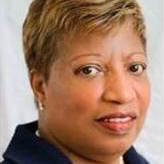 Robert R. Jennings, president of The Lincoln University in Pennsylvania, stepped down from his post. Dr. Jennings had come under fire recently for comments at a fall convocation ceremony that some listeners considered to be blaming rape victims for what had happened to them.
Robert R. Jennings, president of The Lincoln University in Pennsylvania, stepped down from his post. Dr. Jennings had come under fire recently for comments at a fall convocation ceremony that some listeners considered to be blaming rape victims for what had happened to them.
Earlier this year, Dr. Jennings was the target of a no confidence vote from the university’s alumni association. Very recently, it has been reported that the faculty union also voted on a resolution of no confidence in Dr. Jennings leadership.
Dr. Jennings was appointed the 13th president of The Lincoln University in late 2011. Earlier, he was president of Alabama A&M University. He has also held administrative posts at Wake Forest University and North Carolina A&T State University.
Dr. Jennings is a graduate of Morehouse College in Atlanta. He holds a master’s degree and a doctorate in higher education administration from Atlanta University.
 The board of trustees has appointed Valerie Harrison as acting president of The Lincoln University. She has been serving as the university’s General Counsel. Dr. Harrison is a graduate of the University of Virginia, where she majored in economics. She holds a juris doctorate from the Villanova University School of Law, and a master’s degree in liberal arts from Temple University. She is scheduled to receive a Ph.D. in African American studies from Temple University on December 18. Dr. Harrison is the co-author and co-editor of Color Him Father: Stories of Love and the Rediscovery of Black Men (Kinship Press, 2006).
The board of trustees has appointed Valerie Harrison as acting president of The Lincoln University. She has been serving as the university’s General Counsel. Dr. Harrison is a graduate of the University of Virginia, where she majored in economics. She holds a juris doctorate from the Villanova University School of Law, and a master’s degree in liberal arts from Temple University. She is scheduled to receive a Ph.D. in African American studies from Temple University on December 18. Dr. Harrison is the co-author and co-editor of Color Him Father: Stories of Love and the Rediscovery of Black Men (Kinship Press, 2006).











It’s quite apparent that Dr. Jennings is on the receiving end of the politically correct cabal that’s running rampant by entirely too many so-called educated Blacks. It doesn’t require a college degree to interpret what Dr. Jennings was alluding to in the convocation ceremony concerning crimes against women in the released video. You can clearly hear Dr. Jennings tell students at Lincoln University to be more prudent how they conduct themselves and the social decisions they make.
More important, Dr. Jennings did not tell Black female students how they should dress and only to be mindful because it can attract a particular type of unwanted attention from the male counterparts. Yes, Black women have the right to dress in any manner they wish since we do live in a democracy. The same applies to Black male, they have the right to dress any way they feel is suitable for them. Keep in mind this is the 21st century in which the social mores and respect for others and oneself is vastly different compared to the previous generations.
From a higher education administrator perspective, Dr. Jennings should have been more prudent in his word selection because of the politically correct world we live in. Particularly when the larger society has been socially engineered to be hype sensitive regardless if one is telling the truth. If the Lincoln University Alumni(a) Association and other stakeholders can instantaneously assemble their outrage against Dr. Jennings politically incorrect speech, they should expend similar energies in donating money to the university. For the record, I do not have any affiliation with Dr. Jennings and viewed this incident from a purely intellectual honest lens.